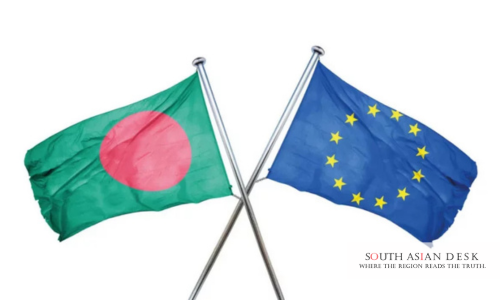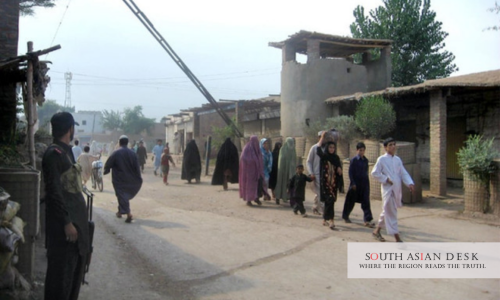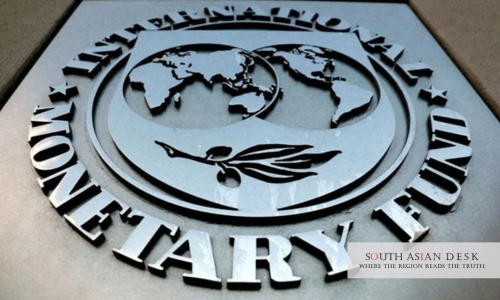Bangladesh EU partnership talks progressed during the third virtual round on 9-10 October 2025. Officials from Dhaka and Brussels discussed key provisions of the Comprehensive Partnership and Cooperation Agreement. The sessions focused on trade investment and migration. Both sides hailed steady advancement toward a 2026 conclusion.
These Bangladesh EU partnership talks hold significance for South Asia. They signal Bangladesh’s rising global stature as the first regional nation to pursue such a pact with the EU. The agreement promises enhanced market access and development aid. It addresses shared challenges like climate resilience and irregular migration. For neighbours this boosts regional economic integration and counters geopolitical shifts.
Key Outcomes from Dhaka Brussels PCA Negotiations
Delegates wrapped up the third round of Dhaka Brussels PCA negotiations on Friday. Bangladesh’s team led by Dr Md Nazrul Islam secretary for bilateral affairs at the Ministry of Foreign Affairs joined virtually and in person. The EU side headed by Paola Pampaloni acting managing director at the European External Action Service steered discussions.
Talks covered political dialogue governance and trade investment. Participants tackled development cooperation too. Thematic sessions delved into climate change digital collaboration education and counter-terrorism. Migration emerged as a priority with focus on sustainable pathways.
Dr Md Nazrul Islam stressed Bangladesh’s dedication. “We seek a partnership that bolsters our long-term development goals” he said. He noted the nation’s shift toward upper-middle-income status. Pampaloni praised the collaborative approach. “The EU values deepening ties with Bangladesh as a key South Asian partner” she added.
Both delegations agreed to accelerate efforts. They aim to finalise the Bangladesh EU cooperation agreement soon. This pact will form a robust legal framework for bilateral relations. It marks a milestone as Bangladesh becomes the first South Asian signatory.
Building Momentum in Bangladesh EU Partnership Talks
The third round built on prior sessions. It narrowed gaps in draft provisions. Officials aligned positions on strategic areas. Progress reflected mutual commitment to balanced outcomes.
Earlier in April 2025 the first round occurred in Brussels. Bangladesh and the EU set a 2026 target then. Constructive dialogue defined that kickoff. The second round followed virtually in July. Each phase advanced the text.
Data from the Ministry of Foreign Affairs underscores stakes. Bangladesh exports worth EUR 20 billion annually to the EU mainly garments and textiles. The partnership could ease post-LDC graduation hurdles in 2026. It ensures continued duty-free access under enhanced terms.
Migration featured prominently. Officials discussed readmission and legal channels. This aligns with September’s EU-Bangladesh Migration Dialogue in Dhaka. That event reaffirmed cooperation on irregular flows. Bangladesh hosts 1.2 million Rohingya refugees a point raised in talks.
Security cooperation gained traction. Counter-terrorism and peace initiatives topped agendas. Digital and educational exchanges promised youth empowerment.
Official Statements Bolster Bangladesh EU Cooperation Agreement
Leaders endorsed the process. In October 2023 European Commission President Ursula von der Leyen announced relaunch alongside Prime Minister Sheikh Hasina. “We relaunch negotiations on a new Partnership and Cooperation Agreement” she stated. This revived ties post-political transitions.
Bangladesh’s Foreign Ministry echoed resolve. A September press release highlighted migration mobility pacts. “Bangladesh and the EU reaffirm shared commitment to deepen cooperation” it read.
The EU Delegation in Dhaka monitored closely. A September 2025 parliamentary mission visited to assess human rights dimensions. It coincided with ongoing Dhaka Brussels PCA negotiations. Members urged robust governance clauses.
Joint Commission meetings reinforced goals. The 11th session in November 2024 stressed business climate improvements. Officials pledged sustainable investments. These endorsements frame the Bangladesh EU cooperation agreement as transformative. It spans EUR 2.5 billion in EU aid since 2014 focused on climate and jobs.
Background: Evolution of Bangladesh EU Partnership Talks
Relations date to 2001 with a basic cooperation accord. That covered trade and development. The EU became Bangladesh’s top export market by 2010. Post-2024 political changes prompted upgrades. The EU shared a draft PCA in September 2024. Negotiations resumed amid reform dialogues.
Bangladesh’s graduation from least-developed status looms in 2026. Without safeguards exports risk tariffs. The partnership addresses this via investment and capacity building.
Human rights factored in. November 2024 talks emphasised defenders’ protection. Environment advocates urged inclusion. Geopolitically South Asia benefits. Stronger Dhaka-Brussels links counterbalance influences. They promote Indo-Pacific stability.
Challenges in Dhaka Brussels PCA Negotiations
Gaps persist on sensitive issues. Migration quotas drew scrutiny. Trade concessions require reciprocity.
Digital governance sparked debates. Bangladesh pushed for tech transfer. The EU sought data protection alignments. Despite hurdles tone stayed positive. Officials scheduled the fourth round for Dhaka soon.
Why Bangladesh EU Partnership Talks Resonate Regionally
In South Asia these talks exemplify diversification. Bangladesh eyes EUR 50 billion in exports by 2030. The pact aids green transitions vital for delta nations.
Neighbours like India and Pakistan watch. It could inspire similar EU engagements. Regional forums gain from shared best practices. For Bangladeshis it means jobs and skills. Over 500000 migrate annually to Europe legally.
What’s Next for the Bangladesh EU Cooperation Agreement
The fourth round heads to Dhaka. Expect in-person deliberations by year-end. Focus will sharpen on final texts. Stakeholders anticipate signatures in 2026. Ratification follows. Implementation phases in with joint committees. Analysts foresee boosted FDI. Sectors like renewables and textiles stand to gain.
In conclusion Bangladesh EU partnership talks forge a vital bridge. They promise prosperity and partnership in uncertain times.
Published in SouthAsianDesk, October 11th, 2025
Follow SouthAsianDesk on X, Instagram, and Facebook for insights on business and current affairs from across South Asia.






